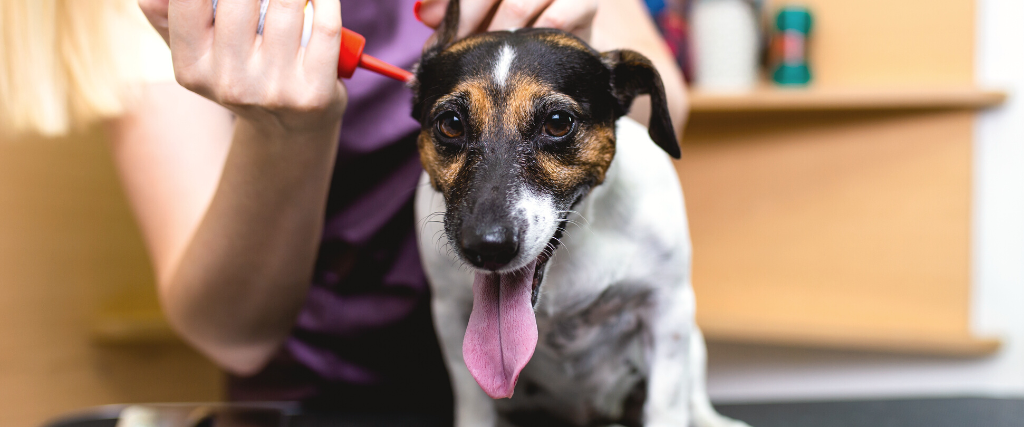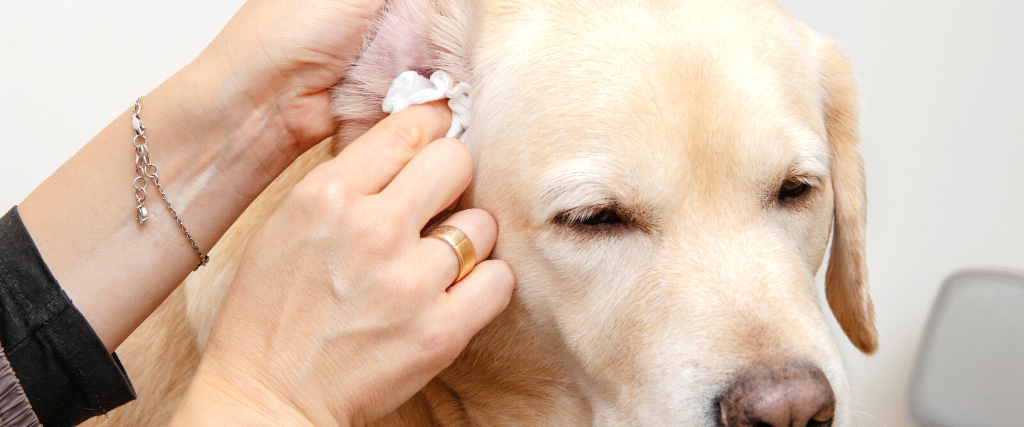While owning a dog means plenty of cuddles, playtime, and neighborhood walks, it also comes with immense responsibility. From staying up-to-date on vaccines and clipping nails to brushing teeth and grooming, they require regular care to ensure good health and happiness. Cleaning your dog’s ears is one task that falls under the not-so-fun category but should be high on your priority list to avoid infection or irritation.
Ear infections are common in certain long-eared breeds, such as Cocker Spaniels and Basset Hounds. Dog owners should never put anything in their dog’s ears if an infection is suspected and should get them to their veterinarian right away. To avoid painful ear infections, follow these tips and tricks to ensure your dog’s ears remain clean and healthy.
1. Understand Your Dog’s Ear Anatomy
A dog’s ear canal forms an “L” shape. It’s very long, with a 90-degree curve that is difficult to reach. A dog’s eardrum sits beyond this 90-degree curve, which means there is a relatively low risk of harming your dog while you’re attempting to clean its ears. Since most of your dog’s ear canal isn’t accessible, a gentle cleanser is needed to reach and clear the entire area. You should also know what a healthy dog's ear looks like—light pink with no apparent dirt or inflammation. The American Kennel Club provides insight on how to tell when your dog’s ears are ready for a cleaning.
2. Purchase an Ear Cleanser
A general-purpose ear cleanser is an essential part of a healthy ear-cleaning routine. These are specially designed for non-infected ears and help clean and remove debris from the ear canal. It can be used 1-3 times weekly with a cotton ball or gauze to gently wipe away excess wax and any visible debris. Dogs who do not suffer from chronic ear infections will not need their ears cleaned this often. It is ideal to check the ears at the time of a regular bath and remove any visible wax with a dry tissue or gauze. For dogs who swim regularly, more frequent cleanings will help prevent ear infections from forming.

3. Avoid Harsh Cleaners or Instruments
The number one way a dog’s ears are harmed during the cleaning process is by using irritants such as alcohol-based wipes or Q-Tips that can put too much pressure on the ear canal. Hydrogen peroxide is also not acceptable, as it can irritate healthy skin cells and sensitive tissue. Stick to gentle ear cleansers designed for pets, along with cotton balls or gauze.
4. Clean When Your Dog is Calm and Sleepy
An energized dog will not stay still and calm for an ear cleaning. Wait until just before bedtime to clean your dog’s ears, when they are relaxed and ready for a long night of sleep after a busy day. Give them gentle rubs while lying on their side to relax them even further.
To clean your dog’s ears once they’re relaxed:
- Hold their ear open while on their side and fill the exposed ear canal with cleanser.
- Fill their ear until you see the fluid, then gently pinch the ear closed to contain it.
- Gently massage the base of the ear for at least 30 seconds. You should hear the fluid swishing around. This action will loosen up any debris that you cannot reach.
- Release your pinch on the ear canal and allow your dog to shake just like they do when they’re wet, which will help to loosen debris further and bring it up higher in their ear canal.
- Use gauze or tear a cotton ball in half and wrap the cotton around your finger, and gently wipe away any debris as far into the ear canal as you can comfortably reach—but no deeper than one knuckle. Use your pinky for the easiest access, and wipe all the crevices.

5. Have a Towel Handy
Large breed dogs have large ear canals that will hold a considerable volume of ear cleanser. You will get sprayed when they shake after you’ve massaged their ear, and the ear cleanser will likely end up all over your dog’s face. You can use the towel to block the spray from hitting you and gently wipe their face afterward.
If you see excessive amounts of wax, smell a foul odor, blood is present, or your dog appears to be in pain from the cleaning, schedule a veterinarian visit. Those are signs of infection. The ASPCA details additional signs of ear infection.

